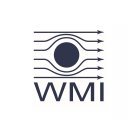
Walther-Meissner-Institute
The Walther-Meissner-Institute for Low Temperature Research (WMI) is a research institute of the Bavarian Academy of Sciences and Humanities (BAdW). It conducts fundamental and applied research in the field of low and ultra-low temperature physics with special focus on quantum systems, quantum computing, superconductivity and correlated electron systems, as well as magnetism and spintronics. It also develops low and ultra-low temperature methods, measurement techniques for characterizing quantum systems and matter at extreme conditions, as well as methods for the growth of single cystals and thin film heterostuctures of quantum matter.
WMI’s superconducting quantum circuits group has more than 15 years of experience in fabricating and characterization of micro- and nano-scale aluminum and niobium thin film structures at microwave frequencies. It operates all necessary facilities to fabricate, characterize and control superconducting quantum circuits. These include an electrical workshop and a mechanical precision engineering workshop with substantial experience in cryo- and microwave technology. WMI has several dilution refrigerators for experiments on superconducting circuits and magnetic systems including several large diameter Bluefors cryostats and a fast turnaround bottom-loading cryostat. It runs a 50m2 class 1000 clean room and several grey rooms including a 100keV electron beam lithography system, a dedicated deposition system for Josephson Junction fabrication, sputter deposition and reactive ion etching tools and a scanning electron microscope for sample inspection. Research topics include applied quantum theory, fluxonium and transmon qubits, tunable and ultrastrong coupling, as well as propagating quantum microwaves.
Main tasks in the project
WMI’s main task in the project is to develop, build and benchmark a demonstrator platform based on alternative superconducting qubits to evaluate the potential of this novel technology relative to standard architectures (WP1, WP6). A further focus is the improvement of materials and fabrication methods for superconducting quantum circuits to enhance coherence times (WP2) as well as the development of scalable concepts for signal conditioning and qubit control (WP3).
Links
Staff members involved
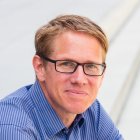
Professor at the Physics Department of the Technical University of Munich, Director of the Walther-Meissner-Institute of the Bavarian Academy of Sciences and Humanities.
Stefan Filipp has been appointed Professor in Technical Physics at the TU Munich and Director of the Walther-Meissner-Institute of the Bavarian Academy of Sciences and Humanities in 2020. Before he has led the superconducting qubit team at the IBM Research – Zurich Laboratory to develop architectures for quantum computing based on superconducting circuits. He has joined IBM in 2014 as permanent research staff member of the experimental quantum computing team at IBM T.J. Watson Research lab in Yorktown Heights, NY, US. His degree in physics he has received from the Vienna University of Technology, Austria, and the Uppsala University, Sweden for his studies on quantum geometric phases effects, for which he was awarded the Victor-Hess Award. He then worked as Postdoc and later Senior Researcher on quantum computing, quantum simulation and quantum optics with superconducting circuits at the ETH Zurich. In 2020 he has been nominated as co-chair of the 'Quantencomputing' expert panel of the German Chancellery. He is currently leading the collaborative research projects GeQCoS and MUNIQC-SC, as well as the superconducting qubit consortium SQQC within the Munich Quantum Valley on enhancing and building quantum processors based on superconducting qubits.
ResearcherID: F-4775-2013
ORCID ID: orcid.org/0000-0002-1976-1817
Google Scholar: Stefan Filipp
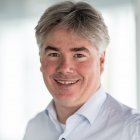
Hans Huebl is a permanent staff scientist at the Walther-Meissner-Institute of the Bavarian Academy of Sciences and Humanities and Associate Professor at the Technical University of Munich. His research interests focus on engineered solid-state hybrid systems addressing challenges of quantum sensing, quantum communication, quantum computing, and quantum memories. He also researches spin currents and magnon transport phenomena in nano-scale magnetic devices. After studying physics at TUM, he received his PhD (summa cum laude) in 2007 working on the electrically detected readout of donor spins in silicon. He joined the Centre for Quantum Computing and Technology (CQCT) as a postdoc where he contributed to single-shot single-spin readout concepts and the development of silicon-based quantum dots for scalable quantum computing architectures. In 2009, he joined the Walther-Meissner-Institute and received his Habilitation in 2014. He is PI in the Cluster of Excellence Munich Center for Quantum Science and Technology, the Munich Quantum Valley, EU funded projects, and participates in the BMBF Grand Challenge of Quantum Communication.
ResearcherID: B-2485-2017
ORCHID: orcid.org/0000-0003-3023-5209
Google Scholar: Hans Huebl
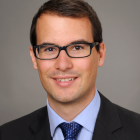
Postdoc at the TUM School of Natural Sciences, Physics Department, Walther-Meissner-Institute, Chair E23, of the Technical University of Munich. Christian Schneider is a dedicated physicist with a strong background in superconducting circuits. He joined the Walther-Meissner-Institute as a Postdoc in October 2022. Prior to this, he held a Postdoctoral Researcher role in the group of Prof. Gerhard Kichmair at the University of Innsbruck, in which he also earned his PhD degree. The primary focus of his current research lies in investigating alternative qubits, particularly fluxoniums, for their potential application in scalable quantum processors.
ORCID ID: orcid.org/0000-0002-5766-7979
Google Scholar: Christian M. F. Schneider
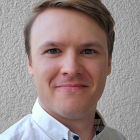
Quantum Engineer at the Walther-Meissner-Institute of the Bavarian Academy of Sciences. He has a background in semiconductor physics, characterization, materials and fabrication. He earned his PhD degree in nanoelectronics at Lund University, Sweden. Following this he joined the quantum computing team the Walther-Meissner-Institute in 2023, where he is focusing on fabrication of high-coherence superconducting circuits.
Orcid ID: orcid.org/0000-0001-5208-8209
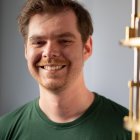
Postdoctoral researcher at the at the Walther-Meissner-Institute of the Bavarian Academy of Sciences.
Max Werninghaus received his Masters Degree from the University of Bonn, where he worked in the group of Dieter Meschede on the deterministic control of atoms trapped in an optical lattice.I n 2018, he joined IBM Research in Zurich, Switzerland, as doctoral researcher in the research team focusing on quantum computing based on superconducting qubits. In 2021, Max relocated to the new quantum computing group established by Stefan Filipp at the Walther-Meissner-Institute in Munich, Germany, and finished his PhD work focusing on the control of superconducting qubits in November 2022. Currently, he is coordinating the experimental efforts of the WMI quantum computing group with the main aim to scale superconducting qubit processors and to provide a cloud computing center with processors with up to 100 qubits in Germany.
ORCID ID: https://orcid.org/0000-0002-6011-9498
Google Scholar: Max Werninghaus